Featured articles

DAX 40 continues to push to new highs
The DAX 40 sees six consecutive days of gains as the index pushes to new highs driven by risk-on sentiment
09:54, 12 January 2026

From Caracas to Wall Street: how the U.S.–Venezuela crisis could move markets
The start of the new year has marked a dramatic escalation in the United States’ confrontation with Venezuela.
08:53, 9 January 2026

Intel stock split: what it means for traders
Intel’s long history of stock splits reflects the company’s evolution through several major technology cycles, from early PC growth to data-centric expansion. With its most recent split taking place more than two decades ago, questions often arise about whether Intel may adjust its share structure again.
15:49, 19 December 2025

Duke Energy stock split: what it means for traders
Duke Energy is a regulated utility company operating across the United States, with its shares listed under the ticker DUK. While stock splits are more commonly associated with high-growth companies, they can also occur in regulated sectors for structural or corporate reasons.
10 hours ago

Siemens stock split: what it means for traders
Siemens AG is a long-established industrial group whose shares are listed in Germany under the ticker SIE. Although the company has not announced a stock split for many years, its historical splits remain relevant for understanding how the share structure has evolved over time.
10 hours ago
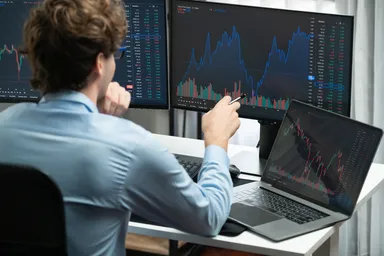
Applied Digital stock forecast: Third-party price targets
Applied Digital is a US-listed company that designs and operates data centres for high-performance computing workloads. Explore APLD’s recent price action, third-party price targets and technical analysis.
11 hours ago

Adidas stock forecast: Third-party price targets
Adidas is a global sportswear manufacturer listed in Germany, with its share price influenced by earnings results, currency movements, consumer trends and broader equity-market conditions. Explore ADS’s recent price action, third-party price targets, and technical analysis.
12 hours ago
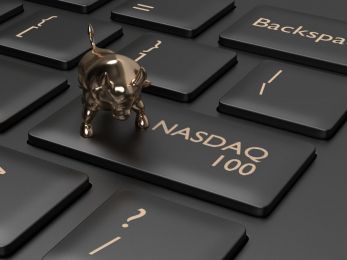
US100 forecast: Third-party targets
The US Tech 100 reflects the performance of some of the largest non-financial companies listed on the Nasdaq and is often used as a reference point for movements in the US technology sector.
16:11, 19 January 2026
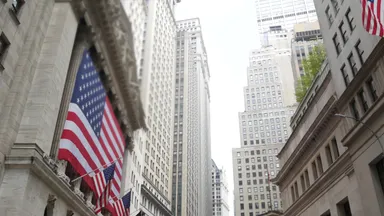
Trading the S&P 500 Following the Greenland Tariff Threat
Equity index takes a hit in the futures market down less than 1% denting short-term technicals, and in sentiment CoT speculators remain net short.
07:25, 19 January 2026

US Wall Street 30 forecast: Third-party targets
The US Wall Street 30 (US30) reflects price movements across a basket of major US blue-chip companies and is closely watched by traders and investors as a gauge of US equity sentiment.
15:20, 15 January 2026
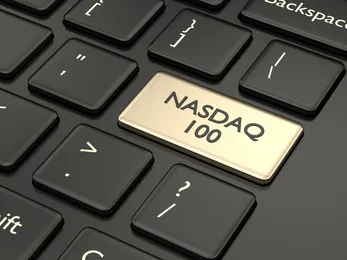
Trading the Nasdaq 100 as Chair Powell is Under Investigation
Risk-off moves in the financial market see futures go for a dip, but it’ll require a bit more to shake off longer-term positive technicals and majority buy sentiment among traders.
10:42, 12 January 2026

Palladium price forecast: Third-party outlook
Palladium trades within a market shaped by industrial use, limited supply and evolving economic expectations. These influences often intersect in ways that drive short-term volatility, setting the context for recent movements in XPD/USD prices.
11:36, 15 January 2026

Natural gas price forecast: Third-party outlook
US natural gas prices are influenced by a complex mix of seasonal demand, weather patterns, production trends and global energy flows. Explore third-party analyst perspectives and technical indicators.
12:05, 14 January 2026

Silver price forecast: Third-party outlook
Silver plays a unique role in global markets, sitting at the intersection of industrial demand and speculative interest. Explore third-party XAG/USD forecasts and Capital.com analyst outlook.
14:50, 12 January 2026

Platinum price forecast: Third-party outlook
Platinum has drawn renewed attention at the start of 2026, with prices trading at levels not seen previously and day-to-day ranges widening across recent sessions.
14:35, 12 January 2026

EUR/USD forecast: Third-party price targets
Movements in the euro–US dollar exchange rate often reflect a shifting balance between economic data, central bank expectations and broader market conditions.
14:00, 14 January 2026

US dollar forecast: Third-party price targets
The US dollar’s performance often sits at the centre of broader market conversations, reflecting how investors are interpreting interest rates, economic data and policy direction at a given moment.
11:42, 14 January 2026

From Caracas to Wall Street: how the U.S.–Venezuela crisis could move markets
The start of the new year has marked a dramatic escalation in the United States’ confrontation with Venezuela.
08:53, 9 January 2026

Year-end volatility appears as strong US growth meets Yen intervention risk
US growth comes in stronger than expected in the third quarter and Japan FX intervention rhetoric. ramps up.
10:13, 24 December 2025

Pi Network price prediction: Third-party outlook
Pi Network has attracted attention as a developing cryptocurrency project, with its token price influenced by a combination of project-specific developments and broader digital-asset market conditions. Discover the latest, third-party PI crypto forecasts.
15:29, 19 January 2026

Ethereum Price Prediction: Third-party outlook
Ethereum is the second largest cryptocurrency by market capitalisation, second only to Bitcoin, with its price shaped by a mix of market sentiment, network developments and broader financial conditions.
14:59, 19 January 2026
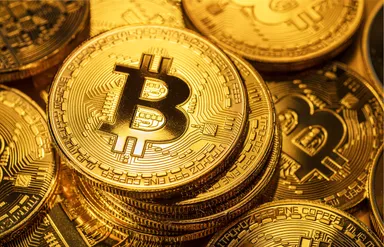
The decision point for bitcoin is here
Past performance isn’t a reliable indicator of future results.
16:40, 16 January 2026
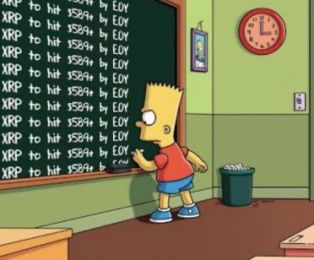
The Simpsons predicted XRP to hit $589: What’s behind the viral claim?
The link between The Simpsons and real-world events often resurfaces when online communities revisit past episodes for possible references or coincidences. XRP has recently been drawn into this discussion, leading some viewers to question whether the show ever hinted at a specific price level.
17:45, 12 December 2025
